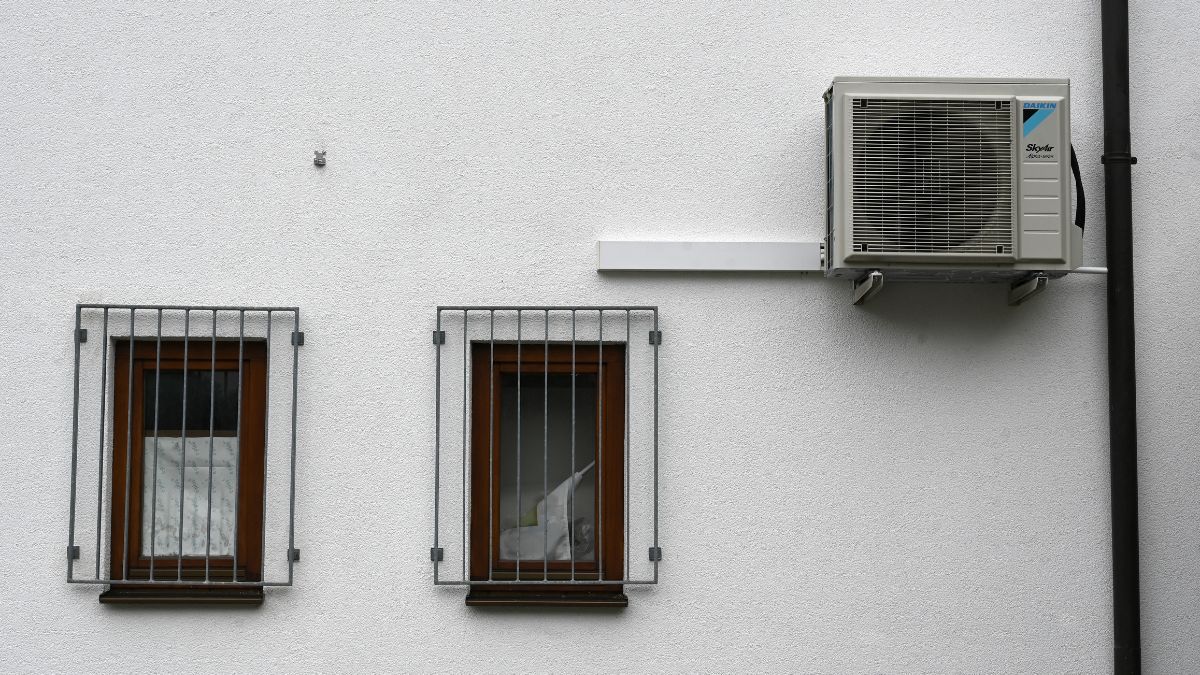An intense heatwave is making Europe sweat. Temperatures have exceeded 40 degrees Celsius in several places, with many issuing heat alert warnings.
There is little respite from the punishing heat, even as the heatwave turns deadly. This is because air conditioning is rarely found in European homes and offices.
As heatwaves become more prolonged and intense, is air cooling the answer to Europe’s problems? Let’s take a closer look.
Why are ACs rare in Europe?
The majority of European households do not have air conditioning, which has become a necessity in many parts of the world as the planet warms.
Just around 20 per cent of European homes have ACs. In the United Kingdom, about five per cent of homes have cooling systems, mostly portable AC units. In Germany, only three per cent of homes have ACs.
According to the 2018 International Energy Agency (IEA) report, based on data from 2016, the European Union (EU) has far fewer AC units than China or the United States.
The overall number of ACs was 96.5 million (9.65 crore) units in the EU, which had around 20 units per 1,000 inhabitants.
The IEA report also mentioned that air conditioning is installed in more commercial buildings than in private homes in Europe.
Europe’s aversion to ACs could be because the countries on the continent have historically had little need for cooling, particularly in the north.
“In Europe… we simply don’t have the tradition of air conditioning… because up to relatively recently, it hasn’t been a major need,” Brian Motherway, head of the Office of Energy Efficiency and Inclusive Transitions at the International Energy Agency, told CNN.
Getting an AC is seen as a small luxury in Europe. The cost of installation and energy bills once it is running are seen as an obstacle.
Energy costs in many European countries are higher than in the United States, where 90 per cent of homes have ACs, but incomes are lower.
The architecture of some buildings, which were built to withstand the heat, in southern European countries has also prevented people from adopting artificial cooling.
Frequent heatwaves are changing attitudes
Europe is the fastest-warming continent on Earth. However, data from Eurostat found that air cooling accounts for just 0.5 per cent of final energy consumption by European households.
As Europe witnesses record-breaking temperatures, attitudes about installing ACs are changing. The number of AC units has more than doubled in Europe since 1990, as per Euronews.
IEA forecasts that the number of air conditioning units in the EU is likely to rise to 275 million (27.5 crore) by 2050.
Richard Salmon, the director of the UK-based Air Conditioning Company, told CNN that he has seen a surge in demand for air conditioning. “Over the last five years, residential enquiries have more than tripled. This heatwave in particular has sent things through the roof… People just can’t function when they’re boiling at 3 am.”
Environmental impact of ACs
Air conditioning uses a large amount of energy and pushes heat outside.
A 2020 study on air conditioning use in Paris highlighted that “if AC systems release heat into the street, as is most often the case, the outside air is warmed and the heatwave worsens.”
“Although it is an efficient solution for households that can afford it, AC makes the situation worse for households who cannot or do not want to adopt it,” the study published in the Environmental Research Letters scientific journal said.
According to the IEA, air conditioning is to be blamed for the emission of around one billion tonnes of CO2 a year, out of a total of 37 billion tonnes emitted globally.
Clara Camarasa, an expert at the IEA, told Euronews that air conditioning “can put immense pressure on electricity grids and accelerate greenhouse gas emissions, exacerbating the climate crisis.”
“Rapid growth in [air conditioning] requirements can lead to the use of inefficient, energy-intensive equipment,” she explained.
“Air conditioners also often need large volumes of water, and some of them, with certain refrigerants, have a particularly warming potential, which is also harmful to the ozone layer.”
Some countries have put restrictions on the use of air conditioning. In 2022, Spain directed public places not to set ACs lower than 27 degrees Celsius to save energy.
Amid soaring mercury, air conditioning is becoming essential in some regions to stay cool.
Access to ACs saves tens of thousands of lives a year, as per a recent IEA report.
Studies have also shown that the risk of heat-related death falls by about 75 per cent for households with air conditioning.
Instead of curtailing the use of ACs, experts say the need is to adopt more efficient cooling systems, insulate buildings and plant vegetation.
“Nature-based solutions are attracting increasing interest as a means of combating urban heat islands. Green spaces [and] green roofs can make cities more resilient, as a complement to efficient technologies,” Camarasa said.
With inputs from agencies
)